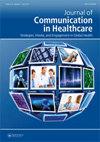COVID-19 Vaccine decision-making: trust among the transgender and disability communities in India.
IF 1.7
Q2 Social Sciences
引用次数: 0
Abstract
BACKGROUND Historical marginalisation and ongoing trust deficits in health and government systems shape present-day vaccine perceptions among marginalised communities. This paper sought to understand the role of trust in decision-making about COVID-19 vaccine uptake in the transgender and disability communities in India. METHODS Using a participatory approach we interviewed 24 community representatives, identifying themselves as transgender individuals or as persons with disability, and 21 key informants such as vaccine programme managers, vaccine providers, and community advocates. We undertook an inductive thematic analysis of the data using a socio-ecological model. RESULTS Fear of side effects in relation to specific needs of the two communities and mistrust of systems involved in vaccination shaped four different pathways for vaccine decision-making. Mistrust of systems was influenced by past negative experiences with the health system, creating contexts in which information and misinformation are shared and interpreted. Participants negotiated their doubts about safety and mistrust of systems by interacting with different sources of influence showing patterns of decision-making that are dynamic, context-dependent, and intersectional. CONCLUSION These findings will help in determining the content, strategies and approaches to equitable vaccine communication for these two communities. The two communities ought to be included in vaccine trials. Vaccine information must respond to the specific needs of these two communities which could be enabled by collaboration and engagement with community members and influencers. Finally, long-term investment towards the needs of marginalised communities is vital to dismantle cycles of marginalisation and distrust and in turn improve vaccine acceptance and uptake.COVID-19 疫苗决策:印度变性人和残疾人群体的信任。
背景历史上的边缘化以及卫生和政府系统中持续存在的信任缺失决定了当今边缘化社区对疫苗的看法。本文试图了解信任在印度变性人和残疾人社区 COVID-19 疫苗接种决策中的作用。方法通过参与式方法,我们采访了 24 位社区代表(他们自称是变性人或残疾人)和 21 位关键信息提供者(如疫苗项目经理、疫苗提供者和社区倡导者)。我们使用社会生态模型对数据进行了归纳式专题分析。结果担心与两个社区的特殊需求相关的副作用以及对疫苗接种相关系统的不信任形成了疫苗决策的四种不同途径。对系统的不信任受到过去与卫生系统负面经历的影响,创造了信息和错误信息共享和解释的环境。参与者通过与不同的影响源进行互动,协商他们对安全性的怀疑和对系统的不信任,这表明决策模式是动态的、依赖于环境的和交叉的。疫苗试验应包括这两个群体。疫苗信息必须满足这两个社区的特定需求,这可以通过与社区成员和有影响力的人合作和接触来实现。最后,为满足边缘化社区的需求而进行的长期投资对于打破边缘化和不信任的循环,进而提高疫苗的接受度和使用率至关重要。
本文章由计算机程序翻译,如有差异,请以英文原文为准。
求助全文
约1分钟内获得全文
求助全文
来源期刊

Journal of Communication in Healthcare
Social Sciences-Communication
CiteScore
2.90
自引率
0.00%
发文量
44
 求助内容:
求助内容: 应助结果提醒方式:
应助结果提醒方式:


